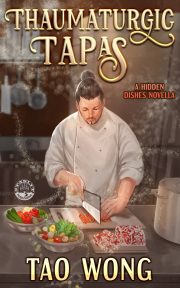History in Speculative Fiction: Repeat, Rhyme, or Echo?
Editor’s note: This piece is part of a rolling series, Writing from History, in which creators share professional insights related to the work of using historical elements in fictional prose.
There’s an adage that people like to bring up when discussing current events: “History doesn’t repeat itself, but it often rhymes.”* It’s a fair assessment, actually. Everything is confined to the context of its time, after all, and no two events are identical, no matter how thematically similar they may feel. And yet, we often do feel common themes transpire across the ages. So the distinction holds true: We shouldn’t expect history to repeat itself exactly, though we can look at past trends to inform the future.
But we are writers, not historians. Novelists and poets are hardly constrained to the rigidity of the real world, and as such, how we include or draw upon history is entirely our prerogative. Could you choose to retell a historical event so as to repeat it exactly? Could you, like history itself, instead create a facsimile of the event—to “rhyme” with it? Or could you take a more subtle approach, merely referencing events so that they are echoes of history for discerning readers? As with any writing-related question about what you “could” do, the answer is “yes.” The more important question is how that inclusion of real-world history serves the story.
Repeat
In terms of repeating historical events in writing, can a work of speculative fiction genuinely do so without becoming a veritable history book? Even placing parallel events in a different setting can change their context enough to feel divergent. On the other hand, some writers might opt to visit the past through time travel, supernatural visions, or a narrative structure that traverses time. Octavia E. Butler’s Kindred arguably repeats history by throwing its protagonist 100 years into the past, then skipping across time from there to weave a poignant narrative about generational trauma and the lasting damage of slavery in America. In this way, history is repeated so that it can be directly experienced and, therefore, more cogently linked to the present.
Rhyme
Once a writer begins to frame history differently, however, they’ve entered “rhyming” territory. To me, this is more in line with alternative history or allegory, which might recontextualize events while still maintaining the essential mood or zeitgeist of a given setting. But to what end? The reimagining might simply be an end unto itself—it’s fun to ask what could have been or paint an entire city in a different color, proverbially or literally. Just as often, though, these alternative portrayals of history hit upon an overarching idea or deliver a message.
As Jeremy Zentner discussed in The Many Alt-Histories of WW2, Philip K. Dick’s The Man in the High Castle offers an alt-history perspective of a world in which Imperial Japan and Nazi Germany won World War II. This provides a clear and dramatic conflict for the oppressed characters—or anyone sympathetic to their plight—but it also explores the competing roles of power, prejudice, and free will in a way that might not be as effective in a traditional setting. As the story continues and hints at competing timelines, it also raises the question of what is authentic or true in a world people have taken for granted.
Historical allegories follow a similar recipe of reimagining real-world events, but just by virtue of being an allegory, the setting tends to look altogether different. If alt-history is a rhyme, then allegory is an off-rhyme. Take George Orwell’s Animal Farm, for instance. The ingredients of the Russian Revolution are all there: We have Lenin, Stalin, and Trotsky in pig form, the farmer Mr. Jones as soon-to-be-overthrown Tsar Nicholas II, and a whole cast of animals to serve as varying sections of the proletariat (the sheep are, unsurprisingly, sheep). But transforming the historical figures and setting doesn’t just make them more fanciful; it satirizes the history and delivers a scathing critique of political power and autocracy.
Echo
How might writers echo history if writers repeat history by retelling it and rhyme with history by repackaging it? Echoes, I posit, are allusions that do not comprise the plot itself but simply supplement it along the way. Virtually any story, regardless of genre, can sprinkle in historical allusions to connect with readers’ prior knowledge and add layers of meaning. But in speculative fiction, where writers want readers to get lost in another world, it can be especially effective to include these brief reminders that we—and our worlds—are ultimately products of our history.
Hyperion by Dan Simmons contains multiple echoes of history (and literature and philosophy and mythos) to great effect. One character even fights in a simulated Battle of Agincourt as a matter of character and plot development. The Hunger Games by Suzanne Collins features its titular plot device as an echo of Roman gladiatorial combat, combined with the lived trauma of the Vietnam War, as expressed by her father. Dune by Frank Herbert is peppered with historical allusions throughout, as family lineage and multi-generational schemes are integral to the story—let alone the overtly Muslim- and Arab-coded Fremen people. Each of these examples, however, is confined to the story’s context and its world, with the historical echo serving more as a literary device than a whole message.
History at Your Discretion
Please note that the above categories are not prescriptive but a convenient way to see how some authors leverage history to enrich their writing. There is no hard-and-fast rule for how you incorporate it yourself or whether you do it at all. Nevertheless, we are all children of history. If you subscribe to the idea that all writing is at least somewhat autobiographical, as I do, then our history will inform our writing in some fashion. It is simply how we wish to include or reference it that matters.
* The attribution to this quote is—perhaps appropriately—lost to time. It is often attributed to Mark Twain, but it would be painfully ironic to repeat hearsay as truth in a blog post concerning history and historicity.

Aaron H. Arm is a speculative fiction writer from central New York. His first novel, The Artifice of Eternity, was published in 2023 by Cosmic Egg Books. He was also published in Dragon Soul Press’s Reign of Fire anthology. In addition to writing, Aaron has edited several novels, memoirs, and anthologies.
Aaron has professional experience in technical writing, communications, copywriting, editing, and teaching. He holds an MA in adolescent education from Ithaca College, where he also received a BA in English literature.



